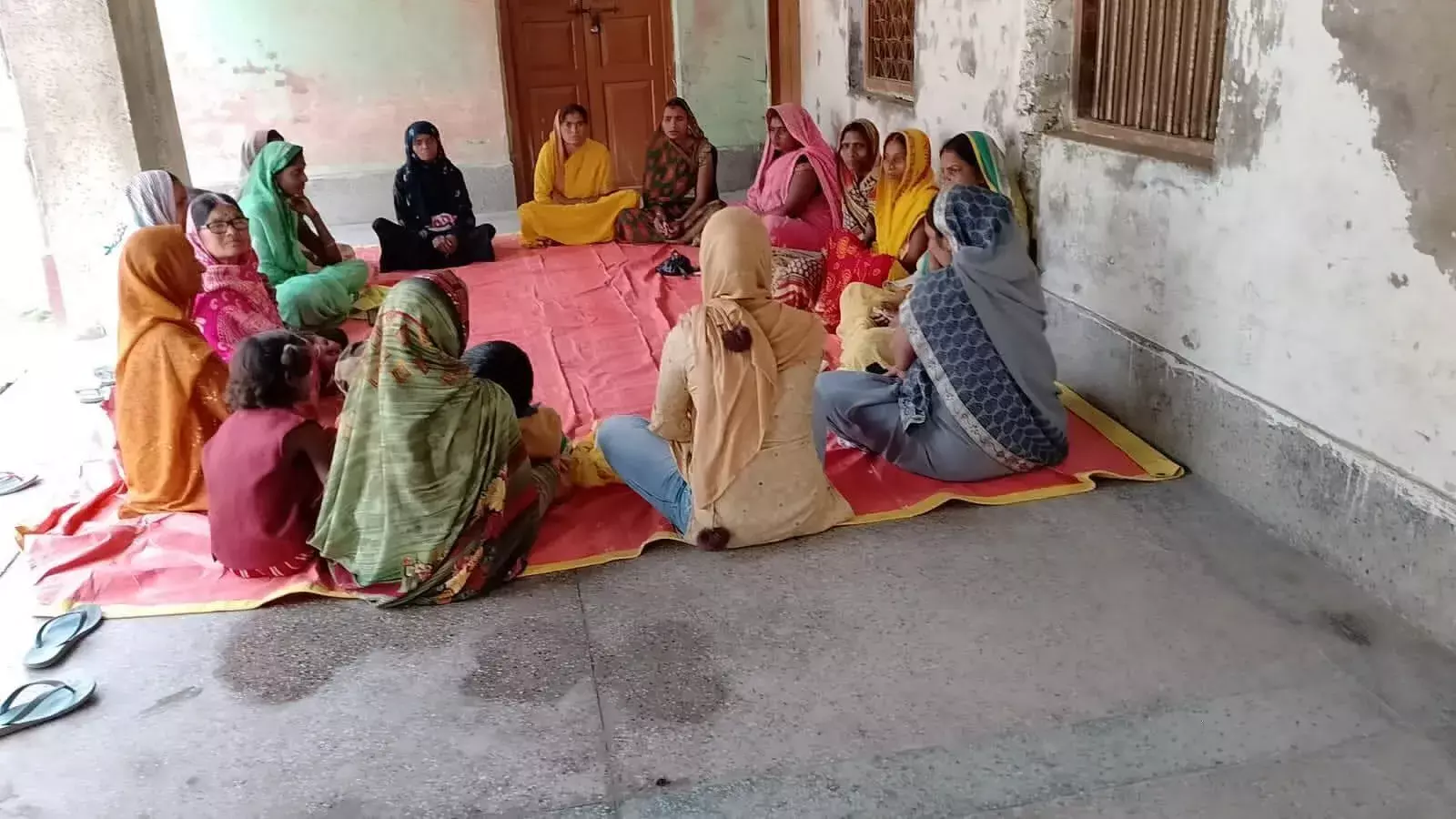Facilitating Women's Political Participation
The Bihar Rural Livelihoods Project, is a community-driven poverty reduction initiative

At a government-run school verandah in the Mairwa block of the Siwan district of Bihar, Manju Devi, a Jeevika coordinator, is heading a meeting of a dozen ‘Jeevika didis’. They are calculating the savings the women of that cohort have achieved through small businesses opened in the past few years.
Manju Devi was also a ward member from the Sewatapur panchayat of the Mairwa block and contested the Zila Parishad elections of 2021. Unlike other women contestants for the position, who were just token figures in the elections while the male members of their families represented them, Manju Devi contested the Zila Parishad elections on her own.
Contesting elections on her own would have been unthinkable for Manju Devi in Bihar. Manju Devi attributes her participation in the local bodies' elections to the women networks she established as a Jeevika coordinator.
Mounted on her bicycle in the Mairwa block of Siwan, Priya Kumari, a Jeevika didi (a term popularly used for women involved in the Jeevika scheme), who just completed her senior secondary school, is doing rounds in her panchayat area. Her job on the day is to visit a widowed woman and check whether she is eligible for Jeevika fund to own a retail shop. Priya is banking on her women's networks like these to contest the local bodies' elections in the coming term.
Informally called Jeevika, or the Bihar Rural Livelihoods Project, it is a community-driven poverty reduction initiative. This program aims to capacitate women individually, and collectively, to opt for appropriate livelihood options for themselves. The project is geared towards improving women's lives through various activities such as Self Help Groups (SHGs), opening retail businesses, cattle rearing, small-scale production units, and so on.
According to Soledad Aritz Prillaman, assistant professor at Stanford University, whose research focuses on the role of SHGs in women's political participation, women groups like Jeevika have become a crucial launchpad for women's political participation.
Prillaman contends that when women have access to women’s groups, their likelihood of political participation increases. Women groups allow Jeevika women to deliberate on concerns like domestic violence and act collectively on issues such as the liquor ban.
Political participation consists of contesting elections and engaging with political institutions at the local level, such as “attending a village assembly meeting, contacting a local elected official, making claims for services and campaigning, and attending party meetings,” notes Prillaman.
Manju frequently visits the local Panchayat Bhavan to claim government services for her women groups. She has also been in touch with the local mukhiya and the sarpanch. Needless to say, her advice is solicited in complaints related to domestic violence.
Recently, Manju was invited to the Samadhan Yatra of Nitish Kumar, Chief Minister of Bihar, wherein Nitish Kumar reviewed the ongoing government projects, including Jeevika.
Meetings of Jeevika are organised every Saturday. Women sit in a circle and discuss the savings from opening local businesses. Meetings of this sort show the sophistication of the Jeevika women's activities. Also, the savings accrued through opening businesses equip Jeevika women with bargaining power and financial resources both within the household and outside of it.
In this way, Jeevika provides women with an identity that is independent of the household. They are not just identified as housewives but as women with financial agency and organisational acumen. Unlike the titular women mukhiyas and sarpanch, on the reserved seats who merely remain as housewives, Jeevika didis take on a new identity.
Another factor that has ushered in women’s political participation is male-out migration from Bihar. According to the Indian Human Development Survey, almost 40-70 % of households in Bihar have at least one male migrant member. Sunita’s brother, too, is a casual migrant labourer.
Sunita feared that with his brother's return in the pandemic, she would find it difficult to leave her home. But, she saw a change in her brother’s attitude, and her brother told her he could do with another source of income in the family beset with pandemic woes.
Moreover, ward member positions are favoured mainly by Jeevika didis like Manju and Sunita due to their small jurisdiction areas and the flexible movement for these women within the ward. Manju and Sunita have almost built an intimate connection with all the women in her neighbourhood and beyond.
Yet, the story of the political participation of Jeevika women is afflicted with several concerns. First, Jeevika is a government initiative, and the increasing political participation of women might be undone if the initiative is withdrawn. Manju and Sunita frowned when this point was mentioned.
Second, most of the Jeevika women are fixated on the concept of “labh” (benefit), a term that emerges in conversations with almost every Jeevika woman. When asked if they wanted to participate in the local bodies' elections, most Jeevika women said, “Where is the labh (benefit) in it?” Women have been socialised in a culture of market transaction under the Jeevika scheme through the concept of businesses and savings. In this sense, more often than not, women are averse to participating in the local bodies’ because there is no “labh” in engaging with these bodies.
Male members of the panchayat claim that women are being used by Nitish Kumar as pawns for the incumbent government. Jeevika women, they claim, are always asked to attend political rallies of the government and are used as vote banks.
Nonetheless, Manju and Sunita's stories show that the ‘Jeevika women’ are more likely to participate in the local bodies' elections than other panchayat women.
SIDHANT KUMAR is a doctoral scholar at the School of International Studies. Jawaharlal Nehru University. Views expressed are the writer’s own.


